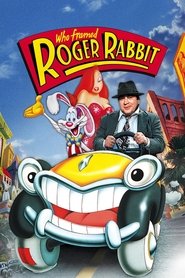Forget it Eddie—it's Toon-town.
The formula of Dip, a substance designed to kill Toons, includes chemicals typically used as paint thinner, suggesting the Toons have been painted.
— Brian Eggert (Deep Focus Review)
Insofar as cartoons do any more than accustom the senses to the new tempo, they hammer into every brain the old lesson that continuous friction, the breaking down of all individual resistance, is the condition of life in this society. Donald Duck in the cartoons and the unfortunate in real life get their thrashing so that the audience can learn to take their own punishment.
— Theodor Adorno and Max Horkheimer: The Culture Industry: Enlightenment as Mass Deception (1944)
A sense of ahistoricism is bound to pervade a movie about the foibles of a cartoon rabbit, but the government-sanctioned, corporate-controlled plot to transform the defining character of Los Angeles from an urban centrality to an unwieldy suburban sprawl resonates as all too true.
— Calum Marsh (Slant Magazine)
Paradoxically, despite the number of crisscrossing creative intelligences behind the camera […] Roger Rabbit consciously and systematically mystifies the creative work behind the cartoons that it euphorically exemplifies and celebrates. The only remotely auteur-like characters in sight — jokester Acme and an irate studio director are dispensed with early on in the proceedings, and the great Hollywood animators of the past are present only through example and emulation. The Toons are apparently self-generated creatures who create their own gags whenever they aren’t acting in studio productions — embodiments of the poetic notion that characters can exist independently of their works and authors.[…]
What this movie shares with the other Spielberg/Lucas blockbusters of the Reagan era, for better and for worse, is an inability to view history as anything other than a reflection of film history (rather than the other way around) — which is as succinct an expression of the Reagan legacy as I can think of.
[…]
After about a decade of the spurious mysticism and junk-shop bricolage of Spielberg and Lucas, a style founded on the exaltation of arrested development as a higher principle, here at last is a giddy and glittering labor of love and a grand entertainment that validates their approach to filmmaking if any movie does, or can.
— Jonathan Rosenbaum (Chicago Reader)

